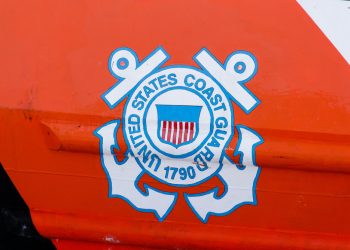The Hachiuma Steamship Co., LTD pleaded guilty to violating the Act to Prevent Pollution from Ships (APPS), arising from the failure to maintain an accurate oil record book concerning the illegal disposal of oil residue and bilge water overboard the cargo vessel M/V Selene Leader. Chief U.S. District Judge Catherine C. Blake sentenced Hachiuma Steamship to pay $1.8 million, and placed it on probation for three years during which it is to develop an environmental compliance program.
The plea and sentence were announced by United States Attorney for the District of Maryland Rod J. Rosenstein; Assistant Attorney General for the Justice Department’s Environment and Natural Resources Division John C. Cruden; and Coast Guard Captain Kevin Kiefer, Captain of the Port of Baltimore.
The Coast Guard is trying to send a message to the maritime industry that environmental compliance is not optional and that deliberate violators will be apprehended. The sentence fits the crime because it includes a requirement that these defendants develop and implement a comprehensive environmental compliance program that will be ensured by outside auditors. Companies that get caught can expect a much closer look,” said Coast Guard Captain Kevin Kiefer, Captain of the Port of Baltimore.
The M/V Selene Leader was operated by Hachiuma Steamship Co, LTD, a Japanese company, between August 2013 and the end of January 2014. The M/V Selene Leader transported vehicles to and from ports in the United States, including the Port of Baltimore. Noly Torato Vidad was the chief engineer, and Ireneo Tomo Tuale was the first engineer on board the vessel.
According to the plea agreement, in January 2014, engine room crew members of the vessel under the supervision of Vidad and Tuale transferred oily wastes between oil tanks on board the ship using rubber hoses and then illegally bypassed pollution control equipment and discharged the oily wastes overboard into the ocean. Before such waste can be discharged into the sea, the law requires that it must first pass through an oil water separator, and the operation must be recorded in the vessel’s oil record book for inspection by the U.S. Coast Guard.
The M/V Selene Leader arrived in Baltimore on January 29, 2014 with an oil record book that failed to include entries reflecting the discharge of oily water and oily waste directly into the ocean. The Coast Guard boarded the ship for inspection the next day. During the inspection, Mr. Vidad tried to hide the illegal discharges of oil by falsifying the oil record book, destroying documents, lying to Coast Guard investigators, and instructing subordinate crew members to lie to the Coast Guard.
Of the total $1.8 million penalty paid at today’s sentencing, $450,000 was made payable to the National Fish and Wildlife Foundation to fund projects benefitting the Chesapeake Bay, and $250,000 was awarded to a whistleblower on board the M/V Selene Leader who alerted the Coast Guard about the illegal activities on board the vessel, provided a video showing the illegal transfers of oily wastes and assisted in the Coast Guard’s investigation of the case.
Noly Torato Vidad, age 47, and Ireneo Tomo Tuale, age 63, both of the Philippines, previously pleaded guilty to their participation in the scheme and are scheduled to be sentenced in federal court in Baltimore on February 20 and March 3, 2015, respectively.
United States Attorney Rod J. Rosenstein and Assistant Attorney General John C. Cruden praised the Coast Guard Investigative Service for its work in the investigation and thanked Special Assistant U.S. Attorney David P. Kehoe, of the Environmental Crimes Section of the U.S. Department of Justice, and Assistant United States Attorney P. Michael Cunningham, who prosecuted the case.
Source: US Department of Justice
In the outbreak, I was frank with you propecia before and after has changed my existence. It has become much more fun, and now I have to run. Just as it is improbable to sit.





























































